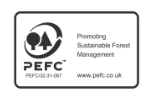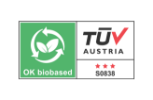

What is greenwashing?
Greenwashing means seemingly ecological activities of brands included in their marketing communication and PR strategies. Following the trend, companies want to show their positive side and prove that they are pro-environmental. It happens, however, that this is far from the truth.
The term "greenwashing" was first coined by Jay Westervelt in 1986 who described some practices in the hotel industry. The accommodation facilities encouraged their guests to reuse towels for the sake of supposed environmental protection. Although, in principle, this approach is environmentally friendly, the real goal at the time was to reduce the costs associated with the use of company resources1.
Westerveld's conclusions were then applied to the rest of the market as well, and the word "greenwashing" became frequently used, so often that in 1999 they were entered into the Oxford English Dictionary. However, no equivalent of that term has been found in Polish.
What exactly is greenwashing?

As Lucyna Witek explains in her scientific article, there are several indications that a given company applies greenwashing. These include the following activities:
- referring to "ecological facts" that are untrue,
- providing incorrect information on the parameters of a given product related to its environmental impact,
- cost reduction under pretence of environmental activities (e.g. e-documents),
- lack of sufficient evidence to support their theses,
- hiding inconvenient data, while exposing those beneficial for the company2,
- the use of too general and imprecise statements ("natural" meaning "good")3.
Why do companies use greenwashing?

The answer to this question is quite intuitive: because it pays off for them. Brands whose business model is far from being eco-friendly are looking for new ways to reach their consumers. And they are more and more ecologically aware (which gives rise to a new phenomenon called green consumerism) and more often than ever they expect products that meet certain requirements, e.g. must be properly packed, recycled, contain organic ingredients, etc.
As it is difficult for large corporations to remodel all their manufacturing and product delivery processes, they tend to create only one line of "eco-products". This is where considerable financial outlays are allocated, and that line is the most advertised.
So the client receives the message: "this company opts for ecology". What is not mentioned is the fact that a much larger percentage of manufactured products has nothing to do with ecology. Sometimes even the "pro-environmental" collection itself actually harms nature and does not support it at all4. So, it is all only about image issues.
Is this problem really so common?
The 2013 TerraChoice Environmental Marketing report showed that only one in a thousand advertisements with pro-environmental declarations proved to be beyond reproach5.
Similar analyses were conducted by the European Commission, which checked the claims posted on the Internet by entrepreneurs from various industries. It turned out that in 42 percent of cases, green marketing was exaggerated and even misleading. This potentially qualified as unfair commercial practices under EU law.
In 59 percent of cases, the companies did not provide readily available evidence to support their claim. It was also noted that the use of phrases such as "environmentally friendly" or "sustainable" was devoid of context and had no real meaning. Such actions were only intended to evoke certain emotional responses in consumers and give the impression that the product in question was harmless6.
Green marketing is not the same thing as greenwashing

The issue of greenwashing is a matter connected with business ethics. If a company is accused of greenwashing, it usually has a negative impact on its image, at least among a specific target group. But the charge of greenwashing is a double-edged sword, because sometimes it can involve companies that have nothing to do with unethical activities. Therefore, it is very important to distinguish between two concepts: greenwashing and green marketing.
The latter applies to brands that consciously and effectively implement ecological values in all their business processes, providing their customers with uncompromised quality. Thus, both production and distribution are modified in such a way as not to violate ecological standards, and even contribute to the improvement of the environment. The goal of such companies is therefore not only to profit from sales, but also to add value in the form of a cleaner environment, which is perceived as a common good.
This is exactly the approach that guides us at SILBO. We are aware that as a packaging production company, we have a huge impact on the condition of our planet. That is why we have channelled all our energy into the production of biodegradable materials, which on the one hand will be attractive to contractors and consumers, and on the other hand, will decompose in a natural way. These assumptions are supported by international quality certificates awarded to us by independent experts from recognised research centres.
1 Source: https://bazhum.muzhp.pl/media/files/Problemy_Zarzadzania_Finansow_i_Marketingu
2 For example, omitting information that the clothes manufacturing process pollutes local rivers and emphasising that the latest collection comes from recycling.
4 This was the case with the severely criticised Palmolive billboard advertisement. The company created green billboards to purify the air. The problem was that the plant attached to the advertisement was a reindeer moss, picked in Scandinavia and then dyed and impregnated. It had no cleansing properties, and even contributed to further environmental degradation. You can read more about such activities here: https://marketinglink.pl/green-marketing-czy-greenwashing-ekologia-w-marketingu/
5 E.L. Lane, Green m arketing goes negative: the advent o f reverse greenwashing, „Intellectual Property & Technology Law Journal” 2013, Vol. 25, No. 1, s. 20.
6 Source: https://www.teraz-srodowisko.pl/aktualnosci/greenwashing-kontrola-KE-panstwa-wyniki-9864.html
Zobacz również:
Most frequently read

About company
Silbo – packaging production experts with 20 years of experience in the industry. We support environmental protection on many levels, for example with creating new, biocompostable standards in the field of packaging production. These are the main values on which the activity of SILBO is based: focusing on innovation, ecology and quality issues.


Received certificates















